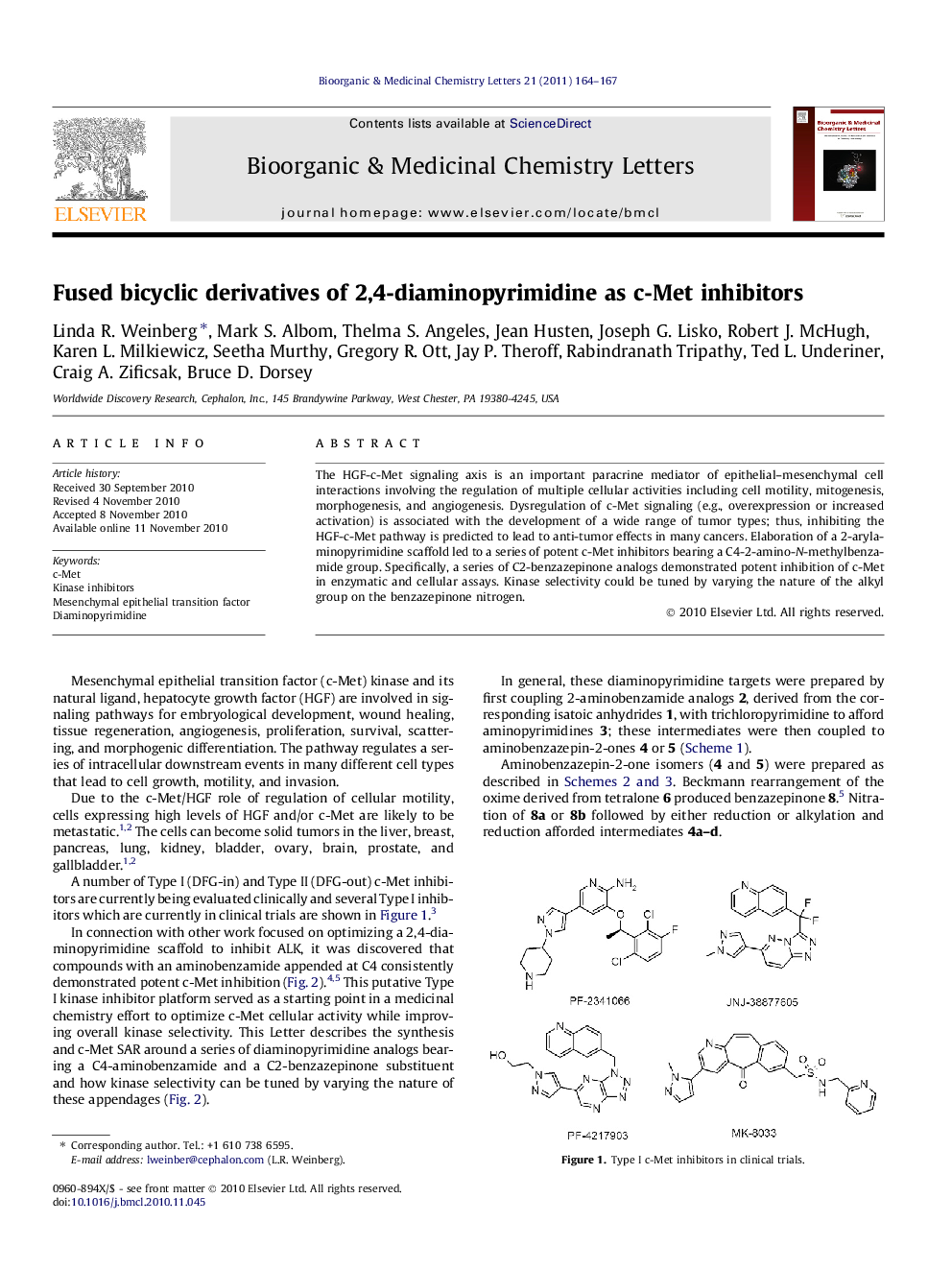| Article ID | Journal | Published Year | Pages | File Type |
|---|---|---|---|---|
| 10588634 | Bioorganic & Medicinal Chemistry Letters | 2011 | 4 Pages |
Abstract
The HGF-c-Met signaling axis is an important paracrine mediator of epithelial-mesenchymal cell interactions involving the regulation of multiple cellular activities including cell motility, mitogenesis, morphogenesis, and angiogenesis. Dysregulation of c-Met signaling (e.g., overexpression or increased activation) is associated with the development of a wide range of tumor types; thus, inhibiting the HGF-c-Met pathway is predicted to lead to anti-tumor effects in many cancers. Elaboration of a 2-arylaminopyrimidine scaffold led to a series of potent c-Met inhibitors bearing a C4-2-amino-N-methylbenzamide group. Specifically, a series of C2-benzazepinone analogs demonstrated potent inhibition of c-Met in enzymatic and cellular assays. Kinase selectivity could be tuned by varying the nature of the alkyl group on the benzazepinone nitrogen.
Related Topics
Physical Sciences and Engineering
Chemistry
Organic Chemistry
Authors
Linda R. Weinberg, Mark S. Albom, Thelma S. Angeles, Jean Husten, Joseph G. Lisko, Robert J. McHugh, Karen L. Milkiewicz, Seetha Murthy, Gregory R. Ott, Jay P. Theroff, Rabindranath Tripathy, Ted L. Underiner, Craig A. Zificsak, Bruce D. Dorsey,
